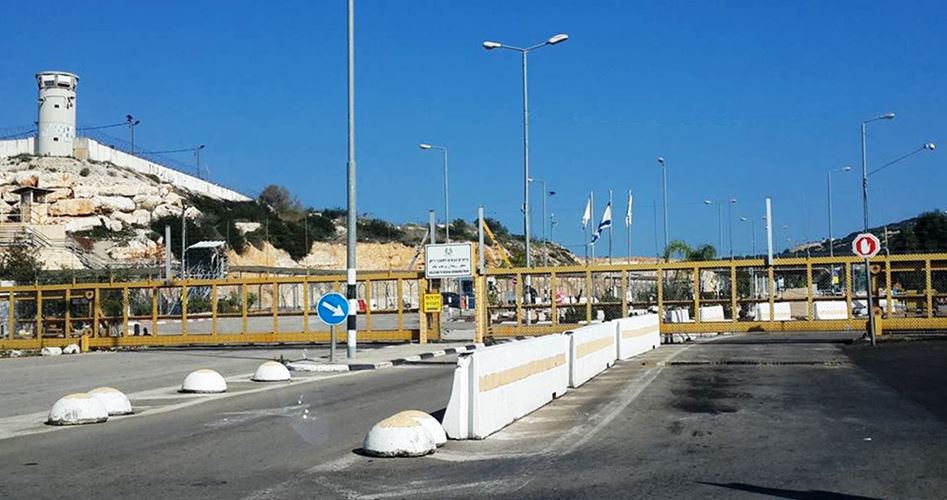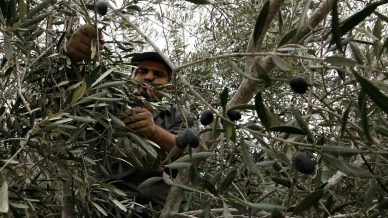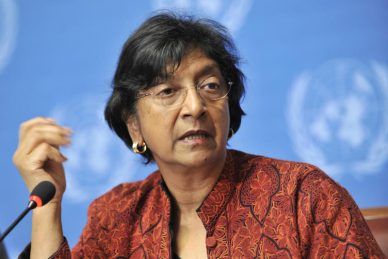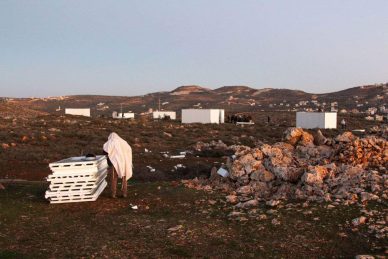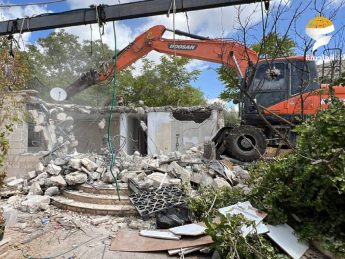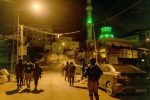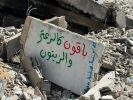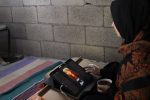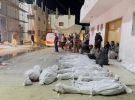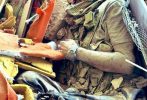Palestinians living near the Barta’a checkpoint in the occupied West Bank had their life completely controlled by the timing of opening and closing the checkpoint. A few Israeli soldiers control the passage of thousands of Palestinians to the north of the West Bank.
This notorious Israeli checkpoint is the only gate connecting the eastern village of Barta’a to the south of Jenin with the rest of the West Bank with the village completely isolated by the Israeli apartheid wall. Employees students workers and merchants have to fix their timetable based on the timing of opening and closing the checkpoint.
Majid Kabaha a resident of Barta’a points to the PIC reporter that this Israeli checkpoint changed the lifestyle of people in the village the same as other checkpoints did with the rest of villages isolated behind the Israeli apartheid wall in the West Bank.
Suffering at the checkpoint takes several forms. Many Palestinian workers and merchants get arrested at the checkpoint both those who attempt to cross it to work at the Barta’a market and those planning to work in the Green Line. For many Palestinians crossing the checkpoint means being arrested by Israel.
Various forms of suffering
Tawfiq Kabaha a member of the local council of Barta’a village stresses to the PIC reporter that the checkpoint which was installed in 2003 following the construction of the Israeli apartheid wall is one of the forms of suffering for Palestinians in the village.
The local council of the village is doing its best to meet the needs of the locals as isolating the village by the apartheid wall and the checkpoint made the burden of the local council even heavier compared with other local councils in the West Bank Kabaha added.
The local council is responsible for providing health environmental and institutional services to the village which is completely dependent on obtaining a permit from the Israeli soldiers.
Workers at societies note that they find themselves sometimes forced to cancel some activities due to the lack of permits given to them at the checkpoint.
Forced displacement
For former Palestinian Minister of Detainees Wasfi Kabaha the checkpoint is a means of repression. He is practically being displaced from his village as the Israeli occupation authorities (IOA) refuse to grant him the needed permit to cross the checkpoint to his village. This takes place although the IOA is committed by law to grant all residents of villages isolated by the wall a permit to cross checkpoints to the their villages.
For years Kabaha has been denied the permit to cross to his village and to take part in various occasions there which makes this Israeli checkpoint a humiliation tool for Palestinians in many ways.
Activist Abdilhakeem Nasser told the PIC reporter that the IOA installed 66 gates at the Israeli apartheid wall in the West Bank 27 of which are shut down. While 39 of them are open 19 of them are open during certain seasons such as during the olive harvest season.
The village of Barta’a has seen demographic and geographic changes since 1948 as it was divided into two with the western part located in 1948 occupied Palestine and with the eastern part located inside the 1967 borders. Following the 1967 occupation the village like many villages in the West Bank has suffered much and has seen various changes.
In 2003 the IOA isolated the village behind the apartheid wall which caused fundamental changes in terms of geography and population.
The village has been isolated from its surroundings and its natural connection with Jenin city creating an ongoing suffering for the village and its residents.
On the other hand the facilities of the village as well as the population have increased relatively due to the open passage of the village to the other 1948 lands.

